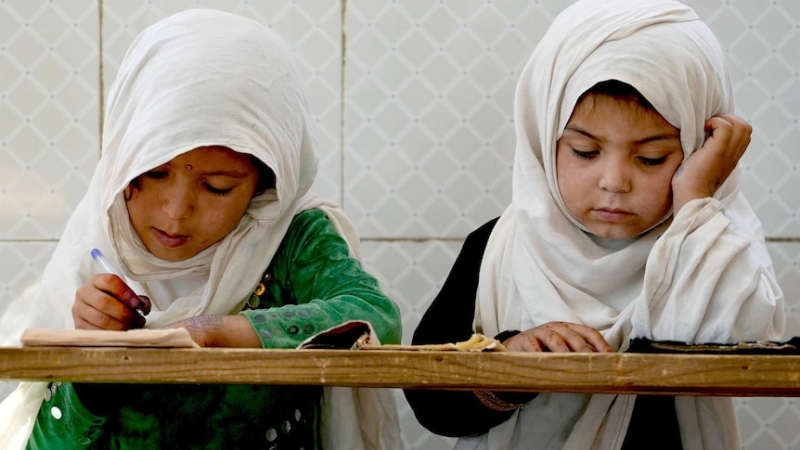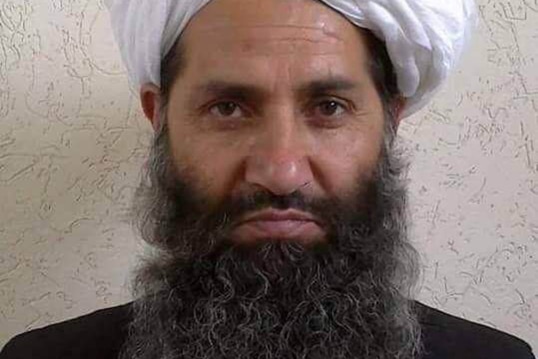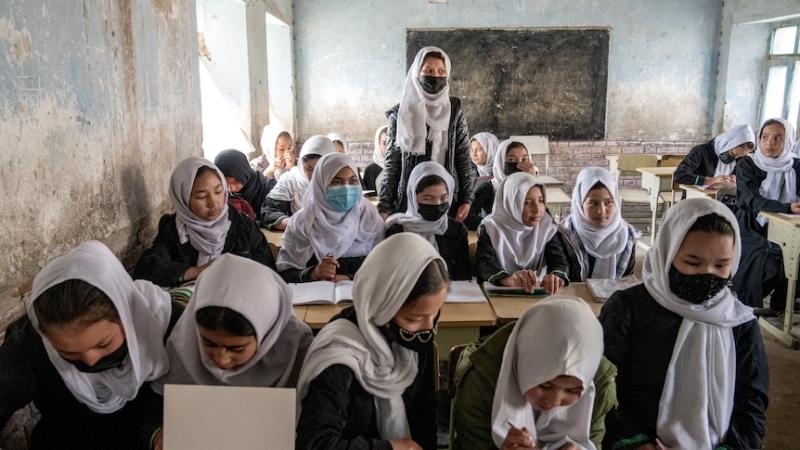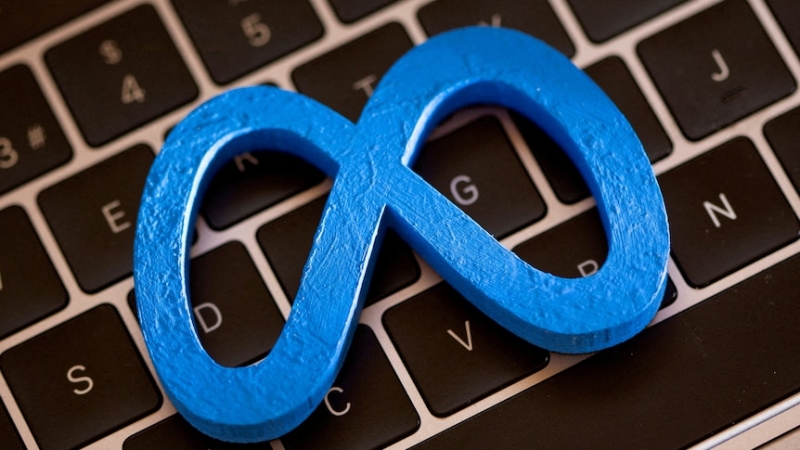After seizing power in 2021, the Taliban government instated a ban on females accessing education after the sixth grade. (AP: Ebrahim Noroozi )
The International Criminal Court's chief prosecutor has requested arrest warrants for senior Taliban leaders in Afghanistan, including Haibatullah Akhundzada, alleging crimes against humanity for widespread discrimination against women and girls.
A statement issued by the office of chief Karim Khan said evidence collected as part of investigations provided reasonable grounds to suspect that Supreme Leader Haibatullah Akhundzada and chief justice Abdul Hakim Haqqani "bear criminal responsibility for the crime against humanity of persecution on gender grounds".
Taliban deputy criticises ban on girls' education
Photo shows Two young Afghan girls sit at a wooden desk, one writing with a pen and one reading.

They are "criminally responsible for persecuting Afghan girls and women, as well as persons whom the Taliban perceived as not conforming with their ideological expectations of gender identity or expression, and persons whom the Taliban perceived as allies of girls and women", the statement said.
Mr Khan said that Afghan women and girls, as well as the LGBTQIA+ community, were facing "an unprecedented, unconscionable and ongoing persecution" by the Taliban.
The persecution has taken place from at least 15 August 2021 until the present day, across the territory of Afghanistan, and is ongoing, the prosecutor said.
"Our action signals that the status quo for women and girls in Afghanistan is not acceptable," he added.

Taliban leader Mullah Haibatullah Akhundzada rules by decree from the movement's birthplace in southern Kandahar. (Twitter)
After sweeping back to power in 2021, Taliban authorities pledged a softer rule than their first stint in power from 1996-2001.
But they quickly imposed restrictions on women and girls that the United Nations has labelled "gender apartheid".
Edicts in line with their interpretation of Islamic law handed down by Mr Akhundzada, who rules by decree from the movement's birthplace in southern Kandahar, have squeezed women and girls from public life.
The Afghanistan probe is one of the longest by ICC prosecutors and has been beset by legal and practical delays.
The initial preliminary examination started in 2007 and it was only in 2022 that a full-scale investigation has moved forward.
ICC judges will now consider Mr Khan's application before deciding whether to issue an arrest warrant — a process that could take weeks or even months.
AFP





